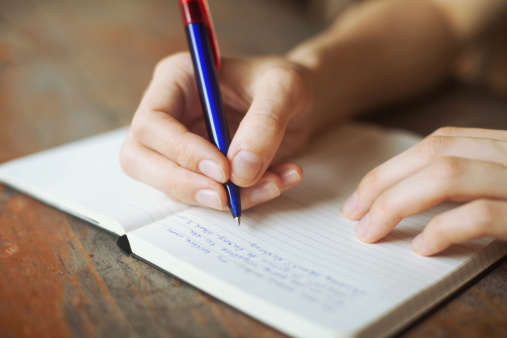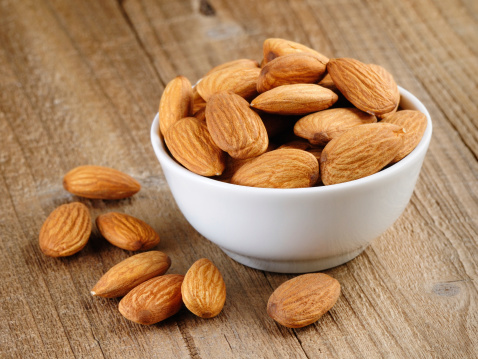6 Ways a Food Journal Helps You Lose Weight
Article posted in: Lifestyle
The research is crystal clear: keeping a food journal can help you lose weight. People who write down their plans at the beginning of each day succeed in meeting their goals much more than those who don’t. Know what else helps? Writing down those successes at the end of the day. To maximize the power of the pen, try these six easy tips. Give yourself a month or more to get used to the writing habit. After all, you know that any new routine takes a while to succeed. As you write down your plans and your triumphs, you’ll probably find yourself succeeding more and more.
Jot down your meal plan. Do it when you get up in the morning. You don’t need a fancy Moleskin diary—any decent note pad will do. Write down the date, plus your three meals and snack. (Be sure to include beverages.) Some people find it helpful to remind themselves of their ultimate goal: “I’m on my way to losing 30 pounds!” But don’t turn this writing habit into a big chore. A couple minutes every morning should do the trick.
Plan your treat. Your morning journal entry shouldn’t be all about perfect behavior. Plan your dessert or other indulgence. This way you won’t feel guilty when you eat it. That’s just part of your plan!
Every evening, write your successes. You can include your failures—the donut you couldn’t resist, or the soda you drank to stay awake. But don’t dwell on them. The evening journal entry should celebrate how much better you’re eating than before.
Was it a “Star” day? It can help to mark those days when you really behaved yourself. If you ate fewer calories than you burned, then mark your evening journal entry with a star. Why does this help? Some people get down on themselves when they misbehave for a single day. But as long as the calorie-deficit days easily outweigh the calorie-surplus days, you’re probably on your way to losing weight.
Read it weekly. At the end of each week, go over your journal entries and see where you succeeded or strayed. Do you spot any patterns? For example, did you buy a candy bar from the office snack machine at the same time over several days? Then think about how you might eat a healthy snack just before that time. Going over your journal turns you into a scientist, with your own body as an interesting experiment.
Hang onto your journal. After a few months, you may find that you have dialed in your nutrition and don’t really need to write things down. Congratulations! Still, don’t throw that notebook away. You might find it helpful in the future. Habits can deteriorate over time, and your notebook can give you a baseline and remind you of which habits work and which don’t. Besides, if you really are what you eat, consider your journal a sort of memoir. Don’t be afraid to record thoughts and feelings that go beyond food. Instead of a meal diary, you could end up with an heirloom.













